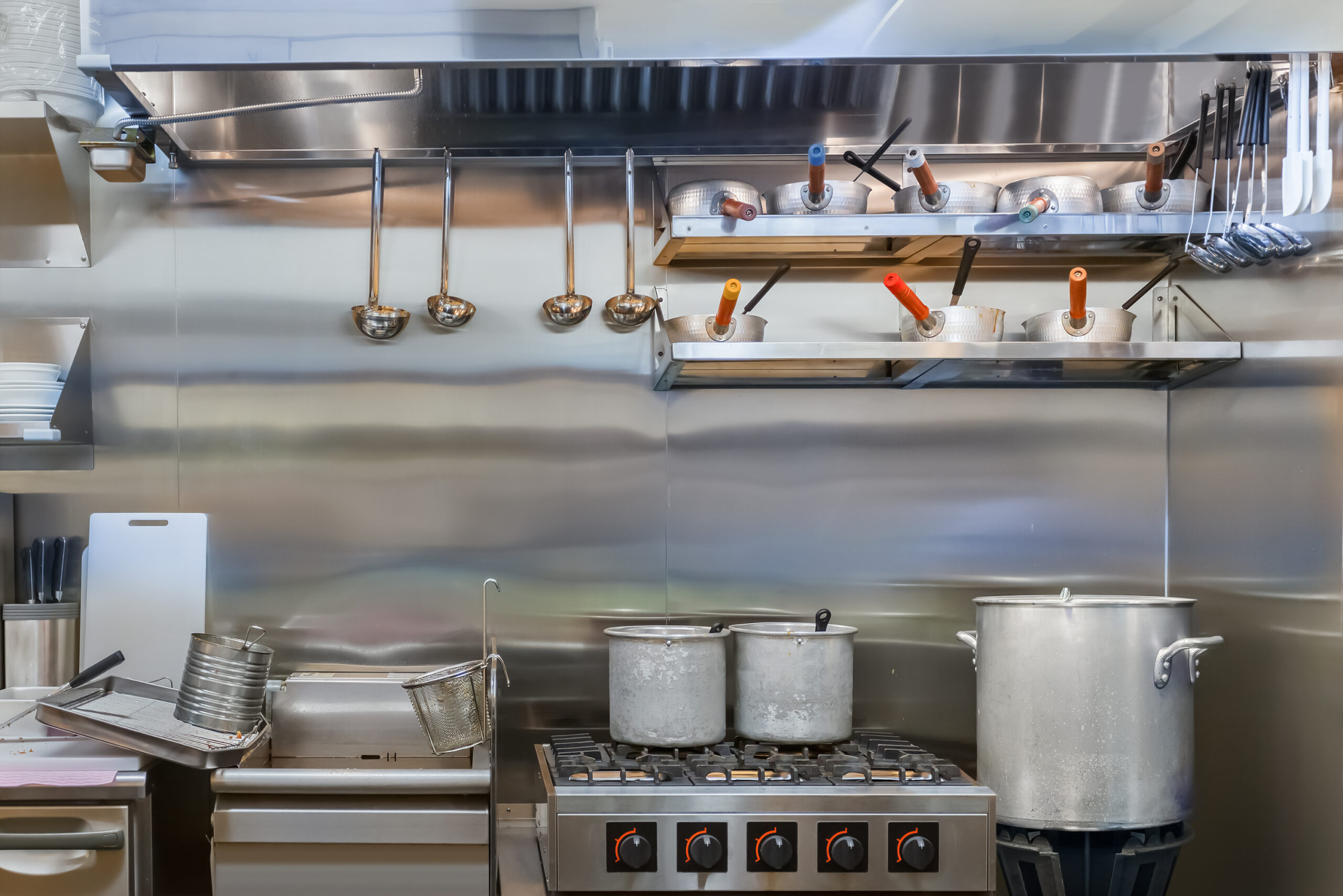Troubleshooting Kitchen Exhaust Cleaning Advice

Ontario-wide Kitchen Exhaust and Hood Cleaning – Best prices and service guaranteed.
Keeping a kitchen exhaust system clean is crucial for maintaining a safe and healthy environment in any commercial kitchen. However, even with regular cleaning and maintenance, issues can arise that require troubleshooting. In this article, we will explore common problems that can occur with kitchen exhaust systems and provide valuable advice on how to address them effectively.
Ontario-wide Kitchen Exhaust and Hood Cleaning – Best prices and service guaranteed.
1. Poor Performance
One of the most common issues with kitchen exhaust systems is poor performance. This can manifest as inadequate smoke and odor removal, excessive heat in the kitchen, or a buildup of grease on surfaces. Poor performance can be caused by several factors:
- Clogged filters: Over time, grease and other debris can accumulate in the filters, reducing their effectiveness. Regular filter cleaning or replacement is essential to maintain optimal performance.
- Improper ductwork design: In some cases, the ductwork may be poorly designed, leading to inefficient airflow. A professional inspection can identify any design flaws and recommend necessary modifications.
- Insufficient exhaust fan power: If the exhaust fan is not powerful enough for the size of the kitchen, it may struggle to remove smoke and odors effectively. Upgrading to a more powerful fan may be necessary.
Ontario-wide Kitchen Exhaust and Hood Cleaning – Best prices and service guaranteed.
To troubleshoot poor performance, start by inspecting and cleaning the filters. If the issue persists, consult a professional to assess the ductwork and exhaust fan power.
2. Excessive Noise
Noisy kitchen exhaust systems can be disruptive and indicate underlying problems. Common causes of excessive noise include:
- Loose or damaged components: Loose or damaged fan blades, belts, or bearings can create excessive noise. Inspect these components and tighten or replace them as needed.
- Imbalanced fan blades: If the fan blades are imbalanced, they can cause vibrations and noise. Balancing the blades or replacing them can resolve this issue.
- Improper installation: If the exhaust system was not installed correctly, it may produce excessive noise. Consult a professional to ensure proper installation.
Addressing excessive noise requires identifying the source of the problem. Inspect the components and consider professional assistance if needed.
Ontario-wide Kitchen Exhaust and Hood Cleaning – Best prices and service guaranteed.
3. Grease Buildup
Grease buildup is a common issue in kitchen exhaust systems and can pose serious fire hazards. To prevent excessive grease accumulation:
- Regular cleaning: Implement a regular cleaning schedule for the exhaust system, including filters, ductwork, and hoods. This will help prevent grease buildup and maintain optimal performance.
- Proper filter maintenance: Clean or replace filters regularly to prevent grease from accumulating and reducing airflow.
- Effective hood design: Ensure that the hood design effectively captures grease and directs it to the filters. A poorly designed hood can lead to grease buildup in other areas of the kitchen.
If grease buildup becomes a significant issue despite regular cleaning, consider consulting a professional for a thorough inspection and recommendations for improvement.
Ontario-wide Kitchen Exhaust and Hood Cleaning – Best prices and service guaranteed.
4. Compliance with Regulations
Compliance with local regulations and codes is essential for kitchen exhaust systems. Failure to meet these requirements can result in fines, closure of the establishment, or even legal consequences. Common compliance issues include:
- Insufficient airflow: Inadequate airflow can lead to poor performance and violation of regulations. Regular inspections and maintenance can help ensure compliance.
- Improper ductwork installation: Ductwork must be installed according to specific guidelines to ensure proper airflow and compliance. Consult a professional to ensure compliance with regulations.
- Failure to maintain records: Many jurisdictions require regular cleaning and maintenance records to prove compliance. Keep detailed records of all cleaning and maintenance activities.
To troubleshoot compliance issues, familiarize yourself with local regulations and codes. Regular inspections and maintenance, along with proper record-keeping, will help ensure compliance.
Ontario-wide Kitchen Exhaust and Hood Cleaning – Best prices and service guaranteed.
5. Professional Assistance
While many kitchen exhaust system issues can be addressed through regular maintenance and troubleshooting, some problems may require professional assistance. If you encounter any of the following issues, consider consulting a professional:
- Significant performance issues that persist after cleaning and maintenance
- Unusual smells or odors that cannot be eliminated
- Excessive noise that persists despite component inspections
- Grease buildup that poses a fire hazard
- Compliance issues that cannot be resolved through regular maintenance
A professional exhaust system cleaning and maintenance company can provide expert advice, inspections, and necessary repairs to ensure optimal performance and compliance.
Ontario-wide Kitchen Exhaust and Hood Cleaning – Best prices and service guaranteed.
Maintaining a clean and efficient kitchen exhaust system is crucial for the safety and functionality of any commercial kitchen. By troubleshooting common issues such as poor performance, excessive noise, grease buildup, compliance with regulations, and seeking professional assistance when needed, you can ensure that your kitchen exhaust system operates at its best. Regular cleaning, maintenance, and inspections are key to preventing problems and maintaining a safe and healthy environment in your kitchen.
Learn more about “Overcoming Problems in Kitchen Exhaust Maintenance” here.
Frequently Asked Questions about Troubleshooting Kitchen Exhaust Cleaning Advice

Why isn’t my kitchen exhaust effectively removing smoke and fumes even after cleaning? 🌫️❓
If your exhaust system isn’t efficiently removing smoke and fumes post-cleaning, several factors could be at play:
Inadequate Cleaning: Perhaps the cleaning didn’t effectively address all grease and debris areas, especially in harder-to-reach sections. 🚫🧽
Fan Issues: The exhaust fan could be malfunctioning or might not be powerful enough for your kitchen’s size. Check its operation and consider an upgrade if needed. 🌀❌
Blocked Vents: Vents leading outdoors could be blocked, causing inadequate ventilation. Ensure they’re clear from obstructions. 🚫🌬️
Incorrect Installation: If the exhaust was not properly installed, it might not function optimally. Consult a professional to assess the setup. 🔧💡
Why does my exhaust system produce a strange noise after cleaning? 🎵🤔
Unusual noises can be concerning but can usually be traced back to a few common causes:
Loose Components: Cleaning might’ve loosened some parts. Check and tighten everything securely. 🔩👂
Misaligned Fan: The exhaust fan might have been accidentally moved out of alignment. Ensure it’s correctly positioned. 🌀📐
Residual Cleaning Agents: Some cleaning solutions or water might be causing temporary sounds. Make sure the system is thoroughly dried post-cleaning. 💦🚫
Damaged Parts: Cleaning might have revealed or exacerbated pre-existing damage. Inspect for any worn-out components. 🔍🔧
How can I prevent water from dripping from the hood after cleaning? 💧🛑
Water dripping post-cleaning can be an annoyance. To prevent this:
Thorough Drying: Ensure all components are dried completely after cleaning. Use absorbent cloths and consider air-drying for an extended period. 🌬️🧺
Inspect Seals and Joints: Ensure all seals are intact and that joints are tight. Any gaps can allow water to seep through. 🧐🔍
Proper Cleaning Techniques: Ensure that water isn’t being forced into crevices or gaps during cleaning. A gentle but thorough approach works best. 💧🚫
Regular Maintenance: Routine checks and maintenance ensure that issues like water accumulation are promptly addressed. 📆🔧
How can I stop the exhaust fan from vibrating excessively post-cleaning? 🌀💢
Excessive vibration can indicate a few potential problems:
Misalignment: Ensure the fan blades are properly aligned and balanced. 📏🌀
Loose Parts: Tighten any loose components, especially around the fan area. 🔩👌
Debris: Even after cleaning, some debris might be stuck on the fan blades, causing imbalance. Check and clear any obstructions. 🍃🚫
Worn-out Motor: The fan’s motor might be nearing the end of its lifespan. Consult with a technician to assess if a replacement is needed. 📆🔍
Why is there an unpleasant odor from the exhaust system even after cleaning? 👃❌
Lingering odors post-cleaning can be disconcerting but are typically due to:
Incomplete Cleaning: There might still be some grease or debris left in the system, especially in hard-to-reach areas. Consider a more thorough cleaning. 🧽👃
Mold or Mildew: If there’s moisture buildup in the system, mold or mildew might form, leading to unpleasant smells. Ensure the system is thoroughly dried after cleaning. 🍄🚫
Expired Cleaning Agents: The cleaning solution used might be expired or not suitable, leaving behind residues that produce odors. Ensure you’re using appropriate and fresh cleaning agents. 🧴❌
External Factors: Sometimes, odors might be coming from external sources, like nearby dumpsters or kitchens. Check the surrounding environment and ensure proper sealing of your kitchen. 🍃🌍
- hood cleaning
- kitchen exhaust cleaning
- restaurant hood cleaning
- Troubleshooting Kitchen Exhaust Cleaning Advice







